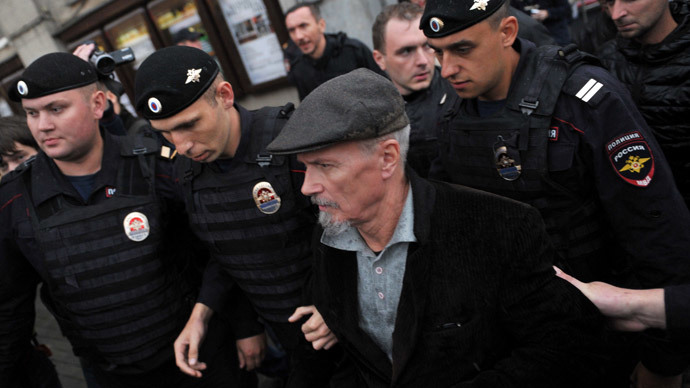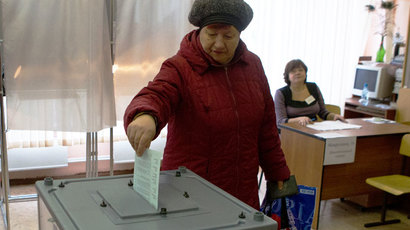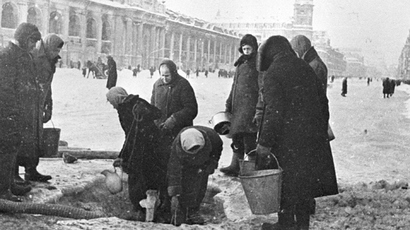Stability & comfort over democracy: Russians share preferences in poll

Seventy-one percent of Russians say they are ready to sacrifice civil freedoms to maintain stability, order and personal well-being, according to influential pollster VCIOM.
The poll was conducted by the All-Russian Public Opinion Center in early March and its results were published on the agency’s website on Thursday. The respondents had to choose between order and democracy when answering the question what is more important for Russia at present.
“Order even if it means some violations of civil rights and freedoms” was chosen by 71 percent, while only 20 percent answered they would prefer democracy “even if it would release certain destructive elements.” Nine percent of respondents could not choose between the two options.
The results are very similar to those of the same poll conducted in 2010 – the only difference is being slightly increased number of democracy supporters and fewer of those who remained undecided.
The researchers also asked the public to explain what they called “order” and “democracy”, also using a multiple-choice method. Forty-five percent answered that they understood order as “maintaining political and economic stability,” 29 percent chose “strict observance of laws,” 23 percent said order was “stopping the looting of the country,” and 20 percent defined order as “an opportunity to realize one’s lawful rights.”
Democracy was understood as “freedom of speech, press and conscience” by 47 percent of respondents. Twenty-four percent said democracy was in “the economic flourishing of the country” and 23 percent said that democracy itself was “order and stability.” The rule of law was favored by 19 percent, while 14 percent said democracy to them was “electing all senior state officials.”
A separate poll conducted by the Levada Center in late March shows that 46 percent of Russians considered their country to be completely democratic, compared to just 38 percent one year ago. Thirty-two percent hold that democracy in Russia still needs strengthening and 13 percent said that the democracy was facing a decrease.
Levada’s pollsters also asked Russians what in their opinion was democracy. Thirty-six percent answered that it was a type of society with a universal rule of law, 31 percent said this meant that the authorities care about people’s needs, 26 percent prioritized the community’s control over the authorities and 21 percent described democracy as the type of society in which officials on all levels are elected by a free vote between alternative candidates.
The same research also demonstrated that Russians are still divided over the question of what matters most for personal well-being: the structure of state and society or individual talents and effort. Forty-six percent hold that their life depends more on themselves, with 48 percent putting the society above them.














